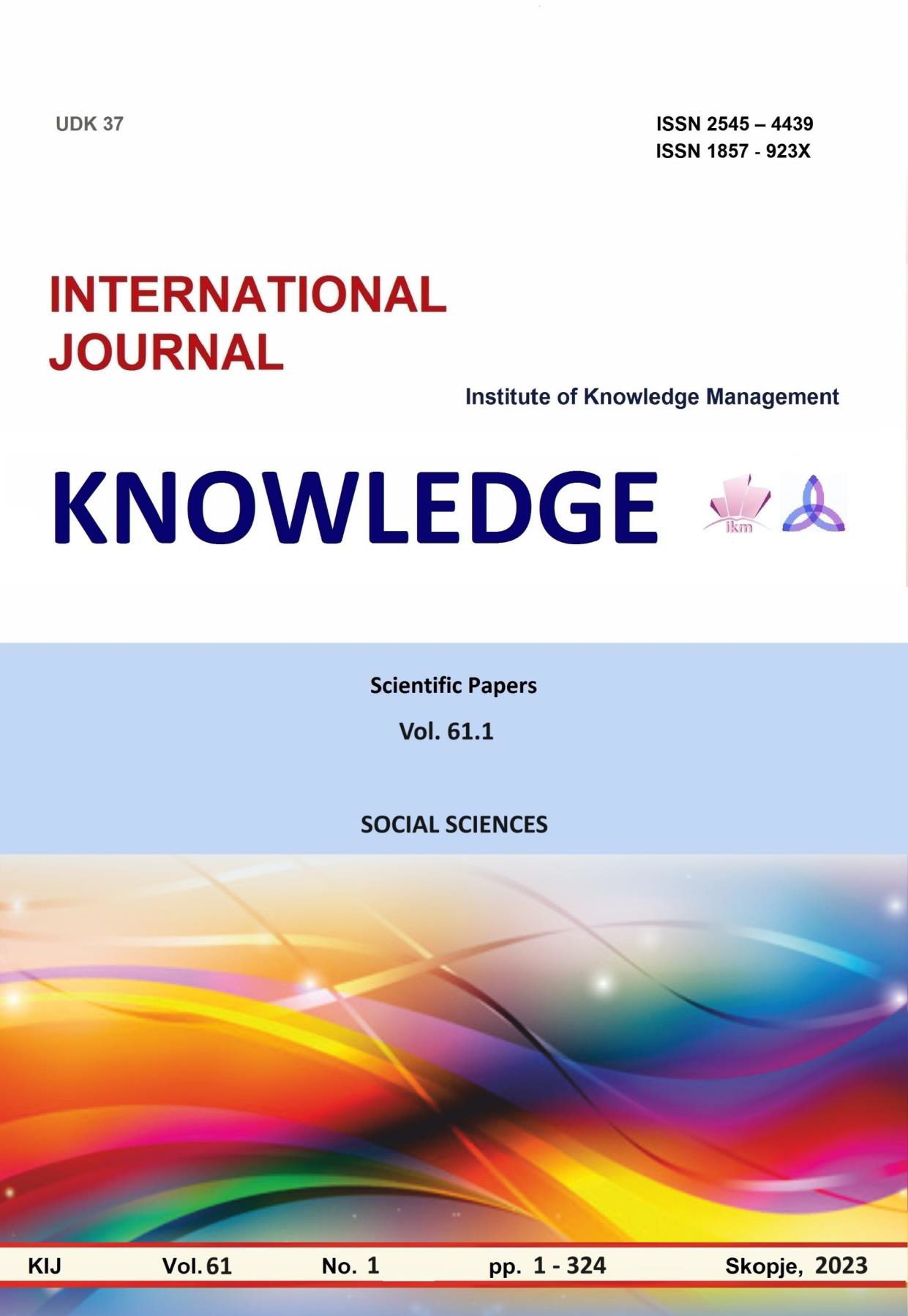CHALLENGES AND OPPORTUNITIES FOR SOCIAL INCLUSION AND EMPLOYMENT OF ROMA PEOPLE IN REPUBLIC OF NORTH MACEDONIA
CHALLENGES AND OPPORTUNITIES FOR SOCIAL INCLUSION AND EMPLOYMENT OF ROMA PEOPLE IN REPUBLIC OF NORTH MACEDONIA
Author(s): Vesna Zabijakin Chatleska, Ivan BlazhevskiSubject(s): Economy, National Economy, Public Finances, Socio-Economic Research
Published by: Scientific Institute of Management and Knowledge
Keywords: socio-economic inclusion;Roma population;employment;labor market participation;North Macedonia
Summary/Abstract: The social exclusion of the Roma population is still a challenge in the countries of South-Eastern Europe where this population is the largest minority group. Especially in the countries of the Western Balkans, including the North Macedonia, the Roma population, has a very low social and economic status, has limited opportunities and low participation in social and cultural life. As a consequence, the Roma face marginalization and discrimination, which in turn makes them the most economically vulnerable ethnic group. The paper aims to analyze the current situation regarding the degree of socio-economic integration of the Roma population, especially in the field of employment and Roma participation in the national labor market. Also, the paper examines the legal framework, policies and programs aimed at improving the integration of the Roma population. The analyzes in the paper are based on a qualitative research strategy and qualitative research methods such as the analysis of official documents originating from the state, textual materials in the form of national legislation, programs, strategic and planning documents, and the analysis of official documents created from other sources, such as research reports and analyzes generated by international and domestic institutions and organizations. The quantitative method of secondary analysis of official statistical data from the field of labor and employment was also applied. Although the country has made partial progress in improving the inclusion of Roma, the findings suggest that there is still much room for improvement, especially in the area of employment. The data show that in the last few years, the number of unemployed Roma is growing, and the participation of Roma in the total number of unemployed is increasing. The biggest obstacles faced by the Roma in the labor market are: the lack of professional qualifications, which is the result of low participation in the formal education system, and, discrimination by employers. As a result, Roma are mostly economically active in the informal labor market and have low-income earnings. Institutional challenges are located in the area of implementation of policies and activities due to systemic inconsistencies, but also due to insufficient consideration of the characteristics of the Roma tradition, and the specific cultural and social norms and values of the Roma community.
Journal: Knowledge - International Journal
- Issue Year: 61/2023
- Issue No: 1
- Page Range: 65-73
- Page Count: 9
- Language: English

